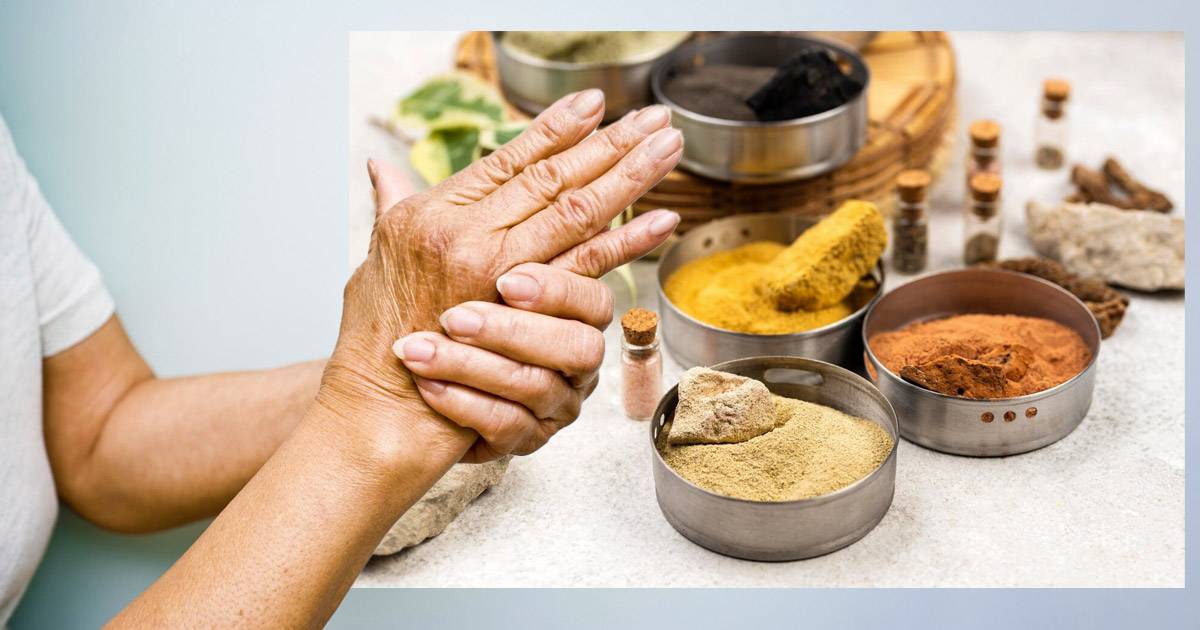Rheumatoid Arthritis Relief with Ayurveda

Rheumatoid arthritis (RA) is a chronic inflammatory condition that affects joints, causing pain, swelling, and stiffness. While conventional treatments focus on managing symptoms, alternative therapies like Ayurveda offer a holistic approach to address the root causes of the disease. Ayurveda for rheumatoid arthritis emphasizes restoring balance in the body through diet, herbal remedies, detoxification, and lifestyle changes.
Understanding Rheumatoid Arthritis Through Ayurveda
In Ayurveda, rheumatoid arthritis is often associated with “Amavata,” a condition linked to the accumulation of toxins (“ama”) and an imbalance in the “Vata” dosha. This imbalance disrupts the body’s natural harmony, leading to joint pain and systemic inflammation. Ayurvedic treatment for rheumatoid arthritis focuses on eliminating these toxins, balancing doshas, and strengthening the immune system to alleviate symptoms and prevent disease progression.
Core Principles of Ayurvedic Management
A combination of practices forms the foundation of rheumatoid arthritis treatment in Ayurveda. These include detoxification, herbal medications, dietary changes, and lifestyle adjustments. Below are the key components:
Detoxification
Techniques like Panchakarma cleanse the body of toxins, improving metabolic function and reducing inflammation.
Dietary Adjustments
Anti-inflammatory diets rich in whole foods, warm spices, and minimal processed ingredients help support digestion and reduce “ama.”
Herbal Remedies
Ayurvedic medicine for arthritis often incorporates herbs like Ashwagandha, Shallaki (Boswellia), and Guggul for their anti-inflammatory and immune-modulating properties.
Yoga and Meditation
Gentle physical activities combined with mindfulness practices enhance joint flexibility, reduce stress, and promote overall well-being.
Key Ayurvedic Interventions for Arthritis Relief
Several interventions play a crucial role in managing rheumatoid arthritis symptoms through Ayurveda. These therapies aim to address the disease holistically and restore balance:
Panchakarma
A comprehensive detoxification process involving treatments like Virechana (purgation), Basti (enemas), and Abhyanga (oil massages). Panchakarma aims to eliminate toxins and rejuvenate the body.
Herbal Formulations
Classical Ayurvedic formulations like Rasnasaptakam Kashayam and Triphala Guggulu target inflammation and joint stiffness.
Dietary Guidelines
Consuming warm, easy-to-digest foods, avoiding cold or raw items, and incorporating spices like turmeric and ginger can help reduce inflammation.
External Applications
Herbal oils like Maha Narayana Taila are often used for localized relief through massages.
Immune Support
Herbs such as Guduchi (Tinospora cordifolia) and Amalaki (Indian gooseberry) strengthen immunity and help combat inflammation.
Scientific Insights into Ayurvedic Efficacy
Ayurvedic approaches to rheumatoid arthritis are gaining scientific interest. Research indicates that combining Ayurveda with conventional therapies can enhance outcomes for some patients. For instance:
- Studies have shown that Ayurvedic interventions can reduce inflammation markers and improve joint mobility.
- Herbal remedies like Boswellia and Ashwagandha have demonstrated significant anti-inflammatory effects in clinical trials.
- Ongoing large-scale clinical trials are evaluating the safety and efficacy of Ayurvedic treatments, aiming to align traditional practices with modern standards.
Exploring Specific Ayurvedic Practices
Ayurveda offers a variety of methods tailored to individual needs. Below are some of the most effective approaches:
Panchakarma Therapy
This detoxification process helps remove toxins, improve digestion, and restore balance to the doshas.
Daily Routines (Dinacharya)
Incorporating simple practices like oil pulling and dry brushing helps maintain systemic health and improve circulation.
Individualized Diets
Tailored meal plans emphasize anti-inflammatory foods and avoid triggers that exacerbate symptoms.
Targeted Herbal Formulas: Medications like Dashamoola Kwatha focus on pain relief and reducing swelling.
Mind-Body Techniques
Yoga, meditation, and Pranayama (breathing exercises) alleviate stress and support joint health.
Benefits and Limitations of Ayurvedic Treatments
Ayurveda’s holistic approach offers numerous benefits, including improved joint mobility, reduced pain, and enhanced overall well-being. However, it’s essential to recognize the limitations:
- Ayurvedic treatments often require time and consistent effort to show results.
- Not all herbs or therapies suit everyone; consultation with an Ayurvedic practitioner is critical for personalized care.
- Combining Ayurveda with conventional medical treatments ensures a balanced approach to managing rheumatoid arthritis.
Integrating Ayurvedic Practices Into Daily Life
Adopting Ayurvedic principles can complement existing treatments and promote long-term health. Simple changes, such as incorporating warm meals, practicing yoga, and using herbal supplements, can make a significant difference in managing symptoms. Regular consultations with both rheumatologists and Ayurvedic practitioners are essential to ensure safety and effectiveness.
Embracing Holistic Care for Arthritis Relief
Ayurveda provides a natural, holistic framework for managing rheumatoid arthritis. Its emphasis on detoxification, herbal remedies, and lifestyle modifications addresses the condition’s root causes rather than merely alleviating symptoms.
While ongoing scientific research continues to validate these practices, integrating Ayurvedic treatments with conventional medicine offers a balanced, patient-centric approach to arthritis care. By embracing this ancient system, individuals can find relief and improve their overall quality of life.
